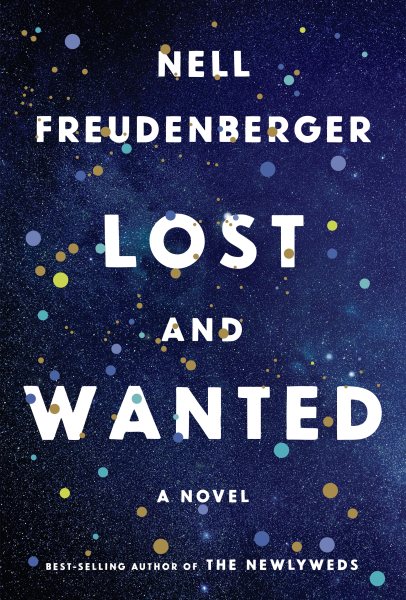By Trianne Harabedian. Special to the Clarion-Ledger Sunday print edition (April 21)
Where do people go when they die? Can they communicate with us from this place? And how can we, as those still here, fill the void they leave behind? These are the questions Nell Freudenberger asks in her latest novel, Lost and Wanted. A compelling work that pairs science with loss, Lost and Wanted is the story of people left behind.
 Roommates in college, Helen and Charlie were opposite forces who became incredibly close. Helen was more scientific and analytical, a quiet woman who made herself known in the academic world, while Charlie was magnetic and outgoing. She was one of those people who everyone wanted to be around. After graduation, the women drifted apart. They both had children, Helen on her own and Charlie with a husband, and they made great strides in their professions. Helen became a theoretical physicist at MIT and published accessible books about physics, and Charlie became a screenwriter in Hollywood.
Roommates in college, Helen and Charlie were opposite forces who became incredibly close. Helen was more scientific and analytical, a quiet woman who made herself known in the academic world, while Charlie was magnetic and outgoing. She was one of those people who everyone wanted to be around. After graduation, the women drifted apart. They both had children, Helen on her own and Charlie with a husband, and they made great strides in their professions. Helen became a theoretical physicist at MIT and published accessible books about physics, and Charlie became a screenwriter in Hollywood.
The novel begins when Charlie dies. She had been diagnosed with lupus a few years earlier and the disease progressed quickly. While the unexpected news is still painful for Helen, the women had not been close in some time and had not spoken in over a year. But before Helen can process her grief, she receives a text from the last person she expected to hear from−Charlie.
A purely rational and analytical mind, Helen does not believe in ghosts. She hardly even believes in strong emotion, only allowing her grief to overtake her once in the aftermath of losing Charlie. But a cryptic text from the beyond is not something to be ignored. In the weeks that follow, her life becomes increasingly entangled with Charlie’s. She brings her son to the funeral, where she becomes reacquainted with Charlie’s family. The last time she saw Charlie’s parents, Carl and Addie, Helen was still an undergraduate student, figuring out her life and feeling like a child. And it has been seven years since she has seen her friend’s husband Terrance and daughter Simmi.
While Helen feels herself falling into old patterns, Addie begins to unexpectedly lean on her for emotional support. And just when Helen thinks she has found her footing and returned to work at MIT as usual, Terrance and Simmi need a place to live. Practical Helen offers them the unfettered use of her downstairs apartment, which leads to a friendship between Simmi and her own son, Jack, who are nearly the same age. Perhaps more significantly, it leads to a strange relationship of grief-sharing and life-sharing between Terrence and Helen. Just as she always was with Charlie, Helen is drawn into the grief and drama of this family.
Throughout the novel, Freudenberger seamlessly weaves college memories and backstories. As Helen remembers Charlie, her thoughts are a story that we follow, revealing details that had been intentionally pushed into sub consciousness. No one is as perfect as we would like to believe, but there is always room for wishing things had been different. Though Helen remains rational, she often wishes she had been closer to Charlie towards the end. That she had not let their friendship fall to the wayside of life and motherhood. The strange texts from the beyond continue to appear in Helen’s inbox, each making less sense than the last. Even while she begins to process and move on, they keep her connected to Charlie and focused on the loss that now is part of her life.
Are there ghosts? What are they like? Or maybe the better question is, how far will we go to believe we are still connected to those who have left us behind? While there might not be answers to these questions of loss and love that are posed in Lost and Wanted, Nell Freudenberger uses them to tell a story that speaks to all of us.
Trianne Harabedian is the children’s section manager at Lemuria Books. Originally from California, she holds a BFA in creative writing from Belhaven University.
Signed copies of Nell Freudenberger’s books are available at Lemuria and on its web store.


Comments are closed.